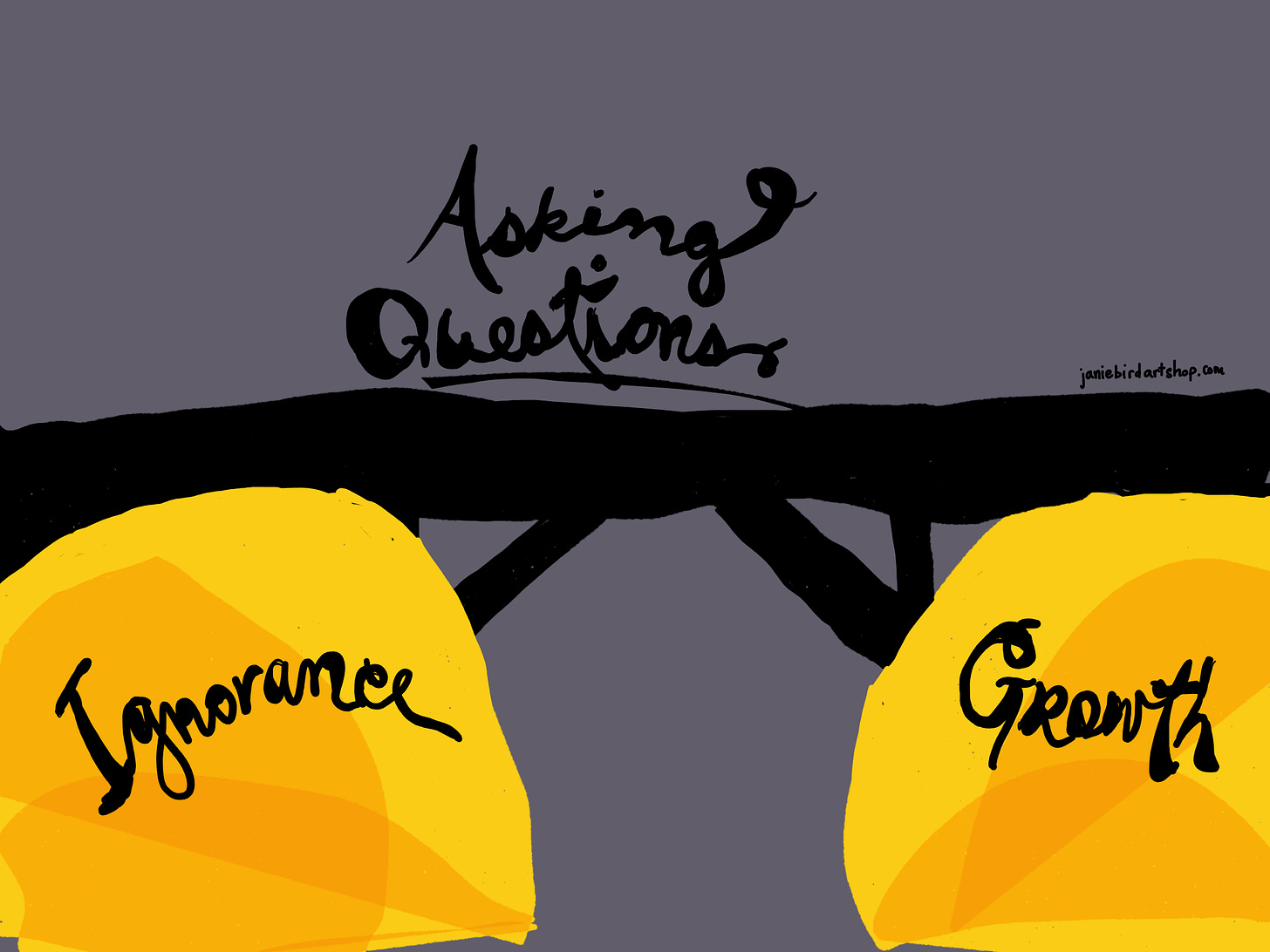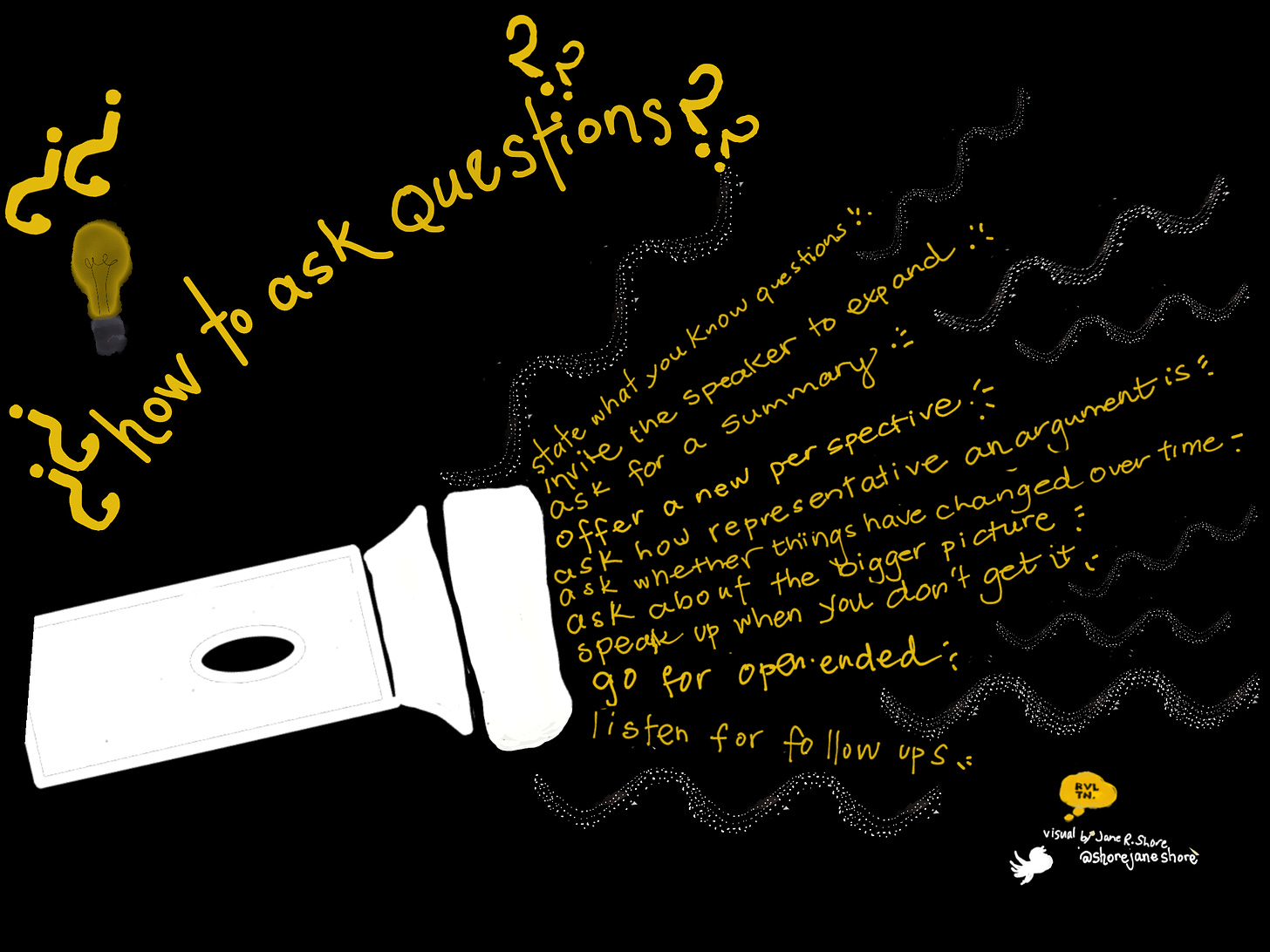Questioning is essential to learning, but we rarely teach how to do it well.
The problem today isn’t that we don’t have the answers, but we don’t have the questions.
— Marshall McLuhan
Warren Berger, author of A More Beautiful Question, says kids ask an average of 40,000 questions between the ages of 2 and 5. But somewhere along the way, especially when we start going to school, we stop publicly asking questions.
Questioning is critical to learning and solving problems. This makes it surprising that, for the most part, we still don’t actively encourage questioning or teach it to young people. Though much of a workday, school day or a day in the life is spent asking questions, unless you are preparing for a career in law, medicine or journalism, where questioning is your work, it’s rare that this skill is actually taught in classrooms.
In schools, you are judged by how well you answer questions, but in life, you’re judged by how good your questions are.
The Big Idea
Past studies reveal that learning strategies that require additional cognitive effort—retrieval practice, elaboration, drawing, and QUESTIONING —encourage us to:
- process the material more deeply,
- consider it in new contexts,
- generate additional memory traces that aid retention.
And people who ask questions, in particular,
- make a better first impression than those who don’t,
- help others feel heard and respected, and
- are seen as better communicators and connectors.
With this information, are we doing a good job of preparing students for a world where questioning is a survival skill? Questions bring us growth. More here.

Making Big Ideas Usable: A Quick Guide to Questioning
This guide was created to root the growth of a questioning culture.
Level 1: Testing the Waters
First level questions are questions that let you in, and encourage jumping further.
1. State what you know questions
- This is one of my favorite question-asking techniques. This takes the following form: State what you understand about the subject so far then ask, “is that right?”
2. Invite a speaker to expand on something.
- Could you say a bit more about why, and what you mean by that?
3. Ask for a summary.
- If I understood you right, you were saying that X was the most important influence on Y. Is that right?
4. Speak up when you don’t get it
- Could you please repeat that and explain what it means?
(When I give a presentation, if someone doesn’t ask me for clarifications, I often worry that they’re not really listening.)

Level Two Questions: Jumping in to the Water
Jumping in to conversations at this second level gets more complex.
5. Ask how representative an argument/interpretation is.
- Were there differences in the way that men and women experienced X?
- What differences does a person’s age make to X?

6. Ask whether things have changed over time.
7. Ask about the bigger picture.
- If you had more time to research your topic, what sorts of things would you want to focus on and explore?
Level Three: Deep Dive Questions
Diving deep with third level takes the thinking to new places.
8. Go for open-ended.
- Questions with “how,” or “why” lead to people giving some thought to their answers and provide much more information.
9. Offer a new perspective.
- When you were talking about X it reminded me of what Wes Moore says about Y. Do you think there are parallels there?
10. Listen for your follow-up questions.
Follow-up questions seem to have special power. They signal to your conversation partner that you are listening, care, and want to know more.

CONCLUSION
So how can we light this spark? Practicing questions in low stakes settings is key. I love these ideas:
- Make it anonymous: Use sticky notes, maybe add prompts, collect and answer.
- Do a Quick Question instead of a Quick Write: A widget for this is here.
- Create Question Starter Cards, the suggestions above are listed here.
- A game: _______is the answer, so what’s the question?
- After school prompt: What questions did you ask today?
Questions and thoughtful answers foster smoother and more-effective interactions, they strengthen rapport and trust, and lead groups toward discovery. But questions and answers have a power that goes far beyond matters of performance. Sustained personal engagement and motivation—in our schools, work and our lives—requires us to be mindful of the transformative joy of asking and answering questions.
Further Resources
- The Real Question Institute offers the Question Formulation Technique.
- Or a GOOD READ: THE ART OF Powerful QUESTIONING by Eric Vogt, Juanita Brown, and David Isaacs.
- An example of a question generation in action here.

Photo by Markus Winkler on Unsplash
